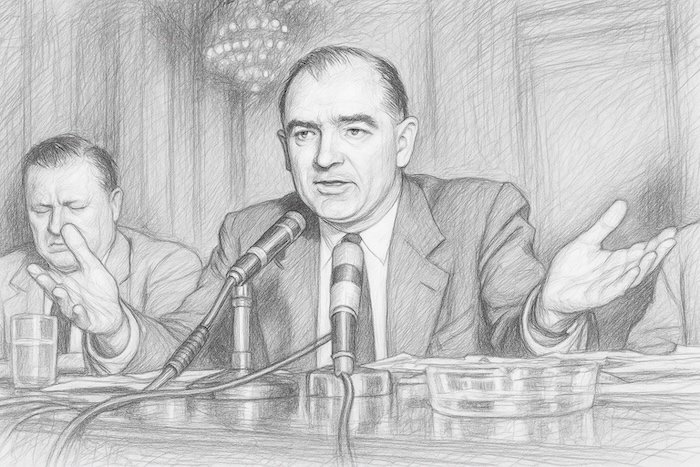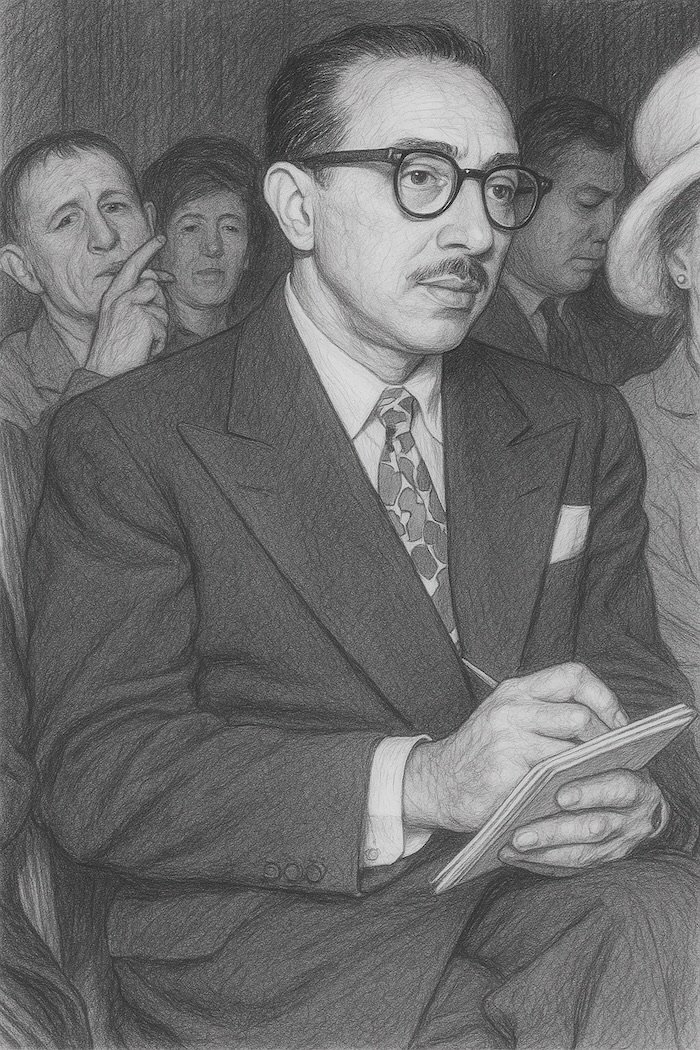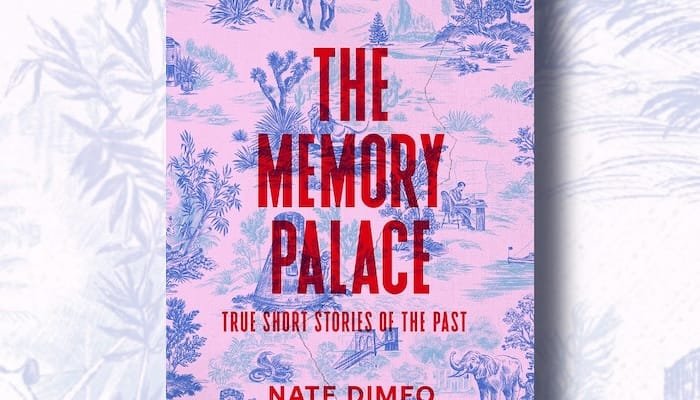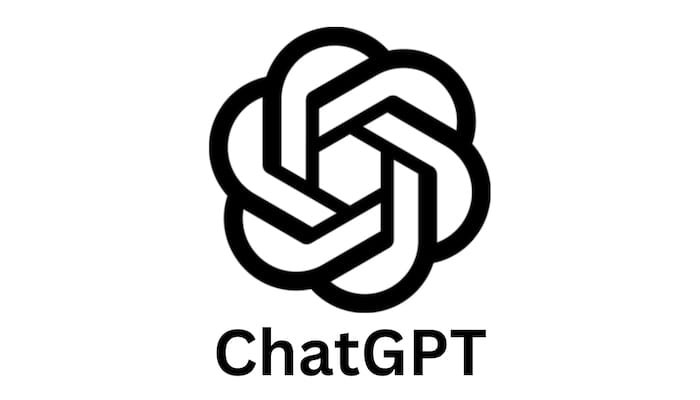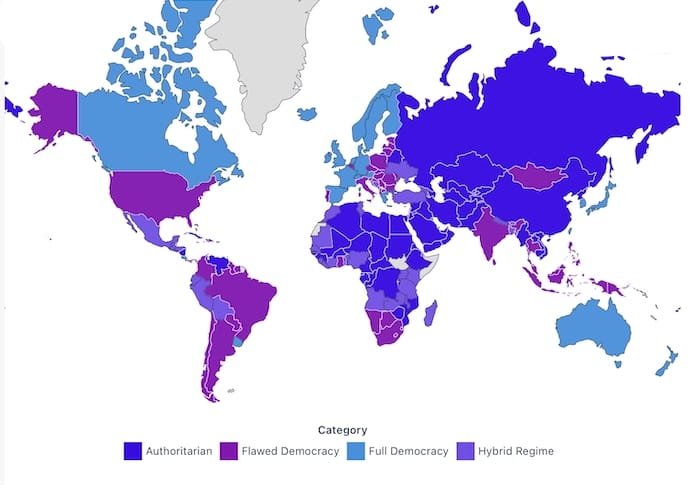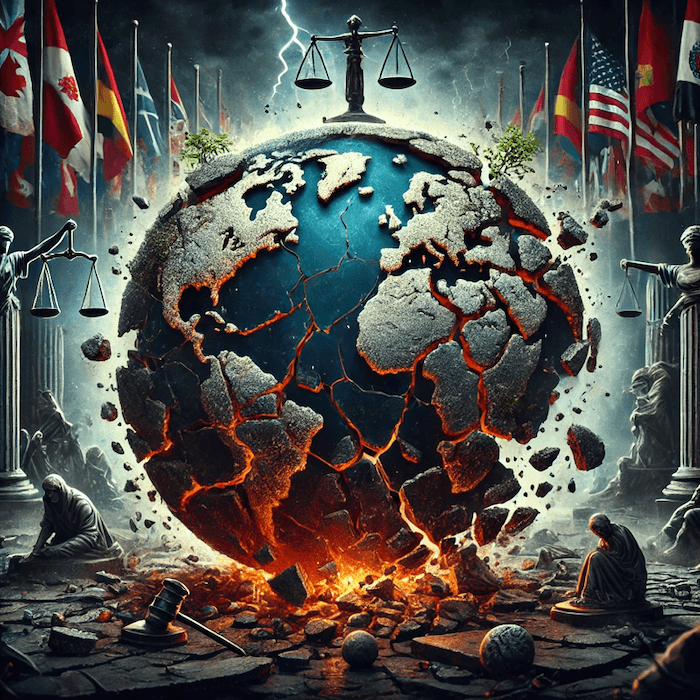Your Stories, AI, and George Washington
On this day in 1790, President George Washington signed into law the first U.S. Copyright Act. The Act emerged from the unique intersection of Enlightenment ideals, economic necessity, and the practical challenges facing a new nation as leaders were trying to establish its cultural and intellectual identity.
To understand why the law felt so urgent to the Founders, we need to step back and consider the current situation. In colonial America, there was no protection for authors’ works. Publishers could freely reprint books without compensating the original author, which created an environment of need without incentive.
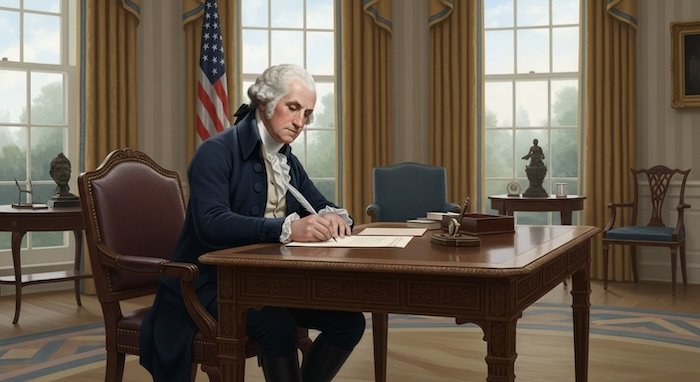
The Founders recognized this as more than just an economic problem — it was a threat to the kind of society they were trying to build. They believed deeply in the power of knowledge and education to sustain a republic. Think about it: how could America develop its own intellectual traditions, its own literature, its own scientific contributions, if there was no financial incentive for Americans to write and publish?
When Washington signed the Act, he was addressing several interconnected challenges. First, there was the immediate practical need to protect American authors so they could make a living from their work. Second, there was a desire to encourage the growth of American publishing and printing industries, which were still quite small compared to their British counterparts. Third, and perhaps most importantly, there was the recognition that a healthy democracy required an informed citizenry, and that meant fostering a robust marketplace of ideas.
The law itself reflected these concerns in interesting ways. It protected books, maps, and charts for fourteen years, with the possibility of renewal for another fourteen years if the author was still alive. This was actually quite generous compared to many state laws of the time, but deliberately limited to prevent the kind of perpetual monopolies that the Founders associated with European aristocracy.
It embodied a carefully considered philosophical approach that prioritized societal benefits while providing necessary incentives for creative production. The legislation was conceived in essentially utilitarian terms, taking as its primary goal the encouragement of intellectual activity and production for the good of society as a whole.
This framework aimed to guarantee both material benefits for creators and intellectual benefits for readers, recognizing that sustainable creative industries required economic incentives while knowledge advancement demanded public access to creative works.
The limited scope of the initial law — protecting only books, maps, and charts — demonstrated a focused approach to establishing the copyright system. Rather than creating a centralized copyright office, the legislation directed authors and proprietors to register their works at U.S. district courts in their areas of residence, establishing a decentralized but systematic approach to copyright administration.
Consider how this law would have affected someone like Benjamin Franklin, who was not only a scientist, inventor, and statesman but also a prolific writer and publisher in Philadelphia.
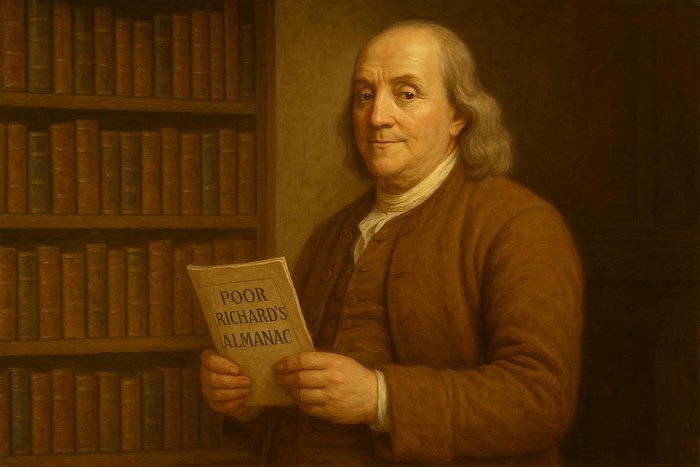
Without copyright protection, Franklin’s “Poor Richard’s Almanac” could have been freely copied by competitors, eliminating his incentive to continue producing it. The same principle applied to countless other potential authors whose stories and ideas might never have reached the public without the economic protection this law provided.
The timing of this legislation — just one year after the Constitution was ratified — reveals how fundamental the Founders considered intellectual property rights to be a critical step in the country’s evolution. They understood that the stories a nation tells about itself, through its literature, its newspapers, its scientific works, and its philosophical treatises, shape its character and destiny. By protecting authors’ rights to profit from their work, they were essentially investing in America’s future capacity to generate and share knowledge.
To ensure broad awareness of the new protections, the Act was widely printed in newspapers following its passage. This dissemination strategy reflected the government’s recognition that the law’s effectiveness depended upon public understanding of both the rights it created and the obligations it imposed.
Copyright Law and AI Training
Navigating Intellectual Property in the Age of Large Language Models
The rapid advancement of large language models (LLMs) has ignited a global debate about the ethical and legal implications of training artificial intelligence systems on copyrighted materials. As AI companies increasingly rely on vast datasets scraped from the internet, questions about intellectual property rights, fair use doctrines, and the boundaries of creative ownership have moved to the forefront of legal and technological discourse.
Major Pending Cases
1. The New York Times v. OpenAI/Microsoft (2024)
- Allegation: ChatGPT reproduces NYT articles verbatim and creates derivative works that compete with original reporting.
- Defense: OpenAI claims transformative use through factual summarization and cites precedents like Authors Guild v. Google (2015).
- Status: Oral arguments scheduled for Q3 2025; considered a bellwether for news media rights.
2. Sarah Silverman et al. v. Meta (2023)
- Allegation: LLaMA model trained on pirated book copies from “shadow libraries” like Bibliotik.
- Defense: Meta argues dataset providers warranted copyright compliance, shifting liability.
- Status: Motion to dismiss pending; could establish liability chains in dataset procurement.
3. Getty Images v. Stability AI (2023)
- Allegation: Stable Diffusion outputs contain modified Getty watermarks, proving unauthorized training.
- Defense: Stability AI claims watermark removal constitutes transformative use.
- Status: UK High Court allowed copyright claim to proceed to trial in 2025.
Regulatory Developments
- U.S. Copyright Office Report (May 2025): Concluded that “unauthorized reproduction of entire creative works for commercial AI training likely exceeds fair use boundaries”. Recommended congressional action to clarify liability.
- EU AI Act (2024): Requires AI companies to document all copyrighted materials used in training and implement opt-out mechanisms for rights holders.
Key Legal Arguments
- Plaintiffs’ Position: Training constitutes mass infringement by creating unauthorized copies during data ingestion. Outputs act as derivative works, violating market value.
- Defense Position: Training is transformative analysis protected by fair use, analogous to human learning. Outputs don’t replicate protected expression.
Back to you…
This is obviously a very complex topic, but I bring it up as many of my clients have published books which formed the foundation of their speaking career. In other cases, clients have worked on crafting their signature talk, and now realize there’s a book to be written.
Some storytellers are okay with their stories being referenced by AI — they feel the exposure is a positive thing. Others, however, believe their original works should be protected — they think that if they end up in the public domain they will suffer financially.
I’m not sure what the outcome will be, but I’m thinking that if President George Washington was alive today he would be concerned about how the Act is being circumvented — that the intent of protecting intellectual property was being ignored in the name of amassing wealth.
◆
contact me to discuss your storytelling goals!
◆
Subscribe to the newsletter for the latest updates!
Copyright Storytelling with Impact® – All rights reserved


